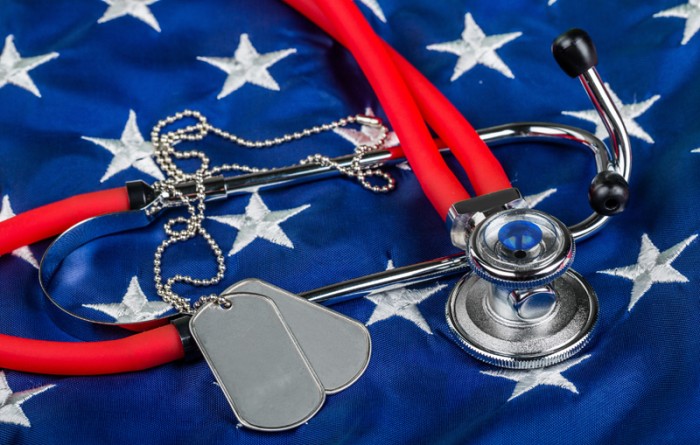Wilkie: VA Care Access Standards Boost Quality, Not Privatization
VA Secretary Wilkie addressed concerns about VA privatization, the MISSION Act, and patient care access standards in a recent statement.

Source: Thinkstock
- The Department of Veterans Affairs (VA) will be revamping its patient care access standards as a part of the 2018 MISSION Act, a move the agency says will promote better patient care, not VA privatization, according to a recent statement from VA Secretary Robert Wilkie.
These patient care access standards were a core component of the MISSION Act, which President Trump signed into law in June 2018. Ideally, these changes will make it simpler for patients and their family caregivers to access treatment in their communities, Wilkie said.
The VA has simplified these access standards, getting rid of what it called “strict and confusing qualification criteria.” Such criteria include driving distances for veterans and proximity to certain community clinics, some of which VA said don’t always offer the service the veteran seeks.
Instead, eligibility guidelines will be based on convenience of care for veteran patients, although Wilkie did not disclose in his statement what those guidelines would be.
Eligibility criteria should emphasize the areas that VA says are important to patients, according to the legislation.
“The Secretary shall ensure that the access standards provide covered veterans, employees of the Department, and health care providers in the network established under section 1703(h) with relevant comparative information that is clear, useful, and timely, so that covered veterans can make informed decisions regarding their health care,” the legislation states.
In lieu of program details, Wilkie focused on the effectiveness of care at VA, asserting that these updates will further its quality and favorability.
“Although these new standards represent an important win for America’s Veterans, they will not be without controversy,” Wilkie wrote. “Some will claim falsely and predictably that they represent a first step toward privatizing the department.”
Care quality and access are better than ever at the VA, Wilkie asserted.
Since 2014, the agency has seen a 3.4 million appointment increase. In 2018, the VA scheduled 58 million appointments, which may indicate that more veterans want to get their care at the VA, Wilkie reasoned.
Veterans also trust the care they receive at VA, with patient trust rates reaching nearly 88 percent, he added. Additionally, patients are facing shorter wait times. This is in comparison to past VA wait times and the wait times veterans currently face in the private sector.
“We know that to keep the trust of our Veterans we must continue to deliver. Our medical services must meet our Veterans’ needs and reinforce the trust that forms the basis for every interaction with VA. We will constantly innovate, upgrade, and pursue ways to serve our nation’s heroes as best we can. Our new access standards are a vital part of this effort,” Wilkie concluded.
“With VA’s new access standards, the future of the VA health care system will lie in the hands of Veterans – exactly where it should be.”
This statement comes amidst some public criticism of the VA and the MISSION Act. The MISSION Act, among other things, revamped the Veterans Choice Program. These programs helped direct veterans facing extraordinary care access barriers – large distances or exceptionally long wait times – to care in the private sector.
Critics state that these programs contribute to the privatization of the VA, dilute care quality, and on the whole harm patients.
Additionally, critics assert that VA lacks the tools necessary to make community healthcare programs run smoothly. Specifically, the referral project that underpins the entire community care operation is ineffective, according to a June 2018 Government Accountability Office (GAO) report.
The referral program is inefficient, GAO said, and leads to a backlog of appointments and wait times exceeding the 30-day maximum.
Although few details about new patient care access criteria have been made public, VA says the changes will support better veteran healthcare.
“In every generation there have been heroes like them, patriots who answer the call to serve, who do whatever it takes, wherever and whenever we need them to defend America,” President Trump said in a statement about the MISSION Act. “They put everything on the line for us. And when they come home, we must do everything that we can possibly do for them. And that's what we're doing.”
